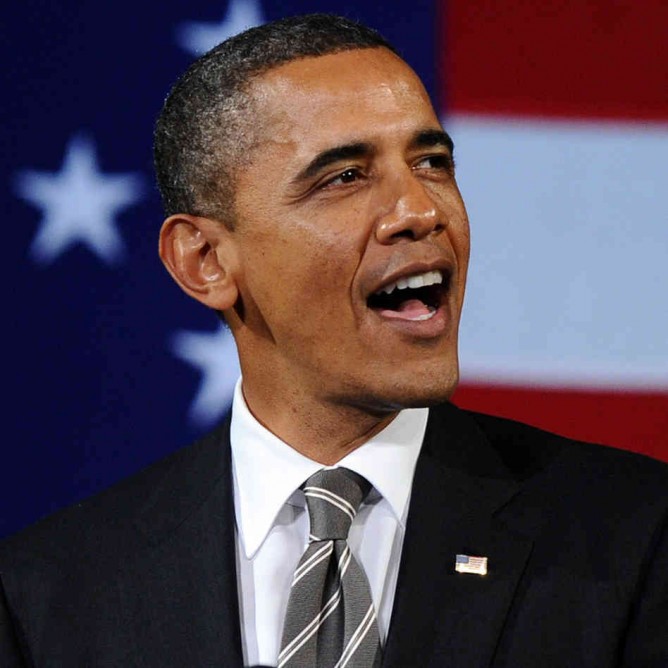President Barack Obama's 26 June-3 July visit to Senegal, South Africa and Tanzania is an important statement of his intent towards Africa during his final term.
His election as president of the United States in November 2008 raised expectations around the world about the emergence of a more consistently and strategically engaged US policy approach to diplomacy and international relations. Given his own mixed African and American ancestry, these expectations were especially strong among pro-African communities within the United States, just as they were in cities and villages across sub-Saharan Africa.
Early in his first administration, Obama visited Ghana in July 2009. The speech he gave in Accra had few specific pledges other than a promise to cut down on funding American consultants and administrators. Instead, President Obama's Ghana trip was mostly about symbolism, offering an effective backdrop for a sharp critique of corruption and repression on the continent, and advocating home-grown governance and stronger institutions and remedies. Ghana was chosen to illustrate an African country that enjoys political pluralism and a growing economy.
A further trip by President Obama had been planned for Sub-Saharan Africa (Michelle Obama visited South Africa and Botswana) but domestic demands such as the US economy in meltdown, pressing foreign policy priorities such as Afghanistan, Iran and North Korea resulted in low-key engagement in comparison to his predecessor George W. Bush, and a policy marked by greater continuity with previous administrations rather than change.
Deliverables
There were highlights during Obama's first term: Hilary Clinton as Secretary of State made Africa a diplomatic priority, visiting 23 African states (out of 54); the 2011 referendum, and then the independence of South Sudan; the changing fortunes of Somalia and discreet mediation efforts by key officials in Malawi, Guinea, Senegal, are all examples of what US good offices can achieve. The $3.5 billion African food security initiative of the Obama administration had impact and the African Growth and Opportunity Act (AGOA), enacted under the Clinton administration, has increased US trade with Africa. It is due for renewal by 2015 but early action on this would be a positive statement of America's desire to deepen trade partnerships with Africa.
There were also disappointments: slowness of appointments to key Africa jobs, such as no permanent assistant administrator of the US Agency for International Development for Africa until 2012 and a US Strategy toward Sub-Saharan Africa was not released till June 2012 – hardly the signal that Africa was an Obama administration priority.
Three-nation trip
Hopefully for Obama's second Africa trip, African expectations are more realistic. Symbolism plays a role again: Senegal, South Africa and Tanzania are important democratic US partners. There is also a need to ensure geographical spread, so West, Southern and Eastern Africa is covered. Two key countries are missing from the list because of their current political condition, Kenya and Nigeria. Avoiding Nairobi while the uncertainty of the International Criminal Court cases hang over President Uhuru Kenyatta and Deputy President William Ruto is prudent.
The decision to avoid Nigeria is questionable. Nigeria will soon host the third largest population in the world and Africa's largest economy but President Goodluck Jonathan and his administration are facing multiple security and governance challenges that require international partnership. A good initiative during the first Obama administration was to re-open a US Consulate in northern Nigeria given the crisis there.
Sadly, spiralling security costs, and a lack of appetite for opening new US diplomatic footprints in dangerous places following the attack on the US consulate in Benghazi has shelved those plans. Yet the US administration can ill afford to be as blind as it is today to northern Nigerian politics.
Relations with South Africa 'awkward'
Senegal and Tanzania are straightforward visits for Obama but not South Africa which theoretically is a strategic partner of the US. South Africa proudly flaunts its membership of the BRICS and sees itself as a vanguard of a new global governance order. Its African National Congress regularly issues communiques condemning US imperial aggression, offering solidarity to Havana, Tehran and Ramallah. The 2011 Libyan intervention in particular is still a raw issue as despite backing UNSC resolution 1973, South Africa's official position was against the NATO bombing and in support of the African Union's 'road map to peace'.
The US-South Africa relationship has been awkward for many years, following a fairly constructive period during the transition from apartheid until the late 1990s. This is despite a US-South Africa Strategic Dialogue and the fact that the US is still one of South Africa's key trading partners in the world.
President Obama's visit will not immediately change this prickly relationship but given South Africa's leadership role in Africa including as a member of the G20, it is important the US and South Africa can understand their respective strategic concerns, improve bilateral relations and trade, and seek common solutions to shared common goals, such as poverty reduction, global health and education.
With elections in Zimbabwe and Swaziland in coming months, a deepening political crisis in Madagascar, continued instability in eastern Congo, and armed violence erupting in Mozambique threatening 20 years of peace, South Africa's neighbourhood does not look stable and Pretoria and Washington will need a better strategic partnership than the one they have currently.
Alex Vines is Research Director, Area Studies and International Law; and Head, Africa Programme of Chatham House.
Source: allAfrica.com



